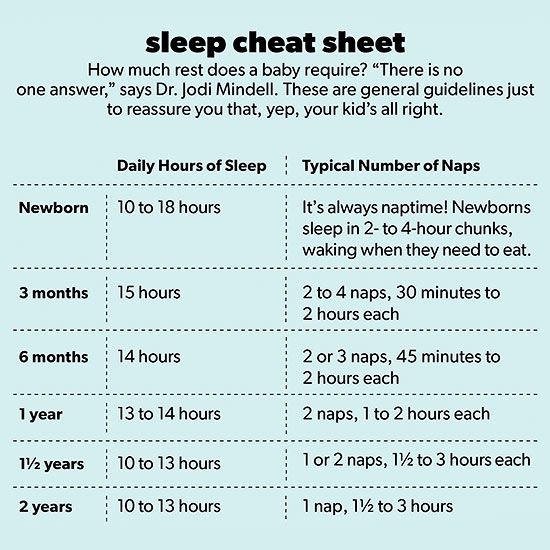Ultimate Guide to Sleep Training Your 8-Month-Old: Say Goodbye to Sleepless Nights
Hey there, super parents! Are you dreamily reminiscing about a full night’s sleep? Do you find yourself lovingly gazing at your adorable 8-month-old, wondering if you’ll ever enjoy uninterrupted dreams again? Well, breathe in that irresistible baby scent and let out a sigh of relief because you’re about to embark on a transformative journey into the world of sleep training!
As your little one hits the 8-month mark, you might notice changes in their sleep patterns. This is perfectly normal! Babies at this age are developing rapidly and they might need a little help learning how to snooze soundly through the night. That’s where sleep training comes in, and we’re going to make this as smooth as a lullaby.
Understanding Sleep at 8 Months
First off, let’s understand what’s going on with your bundle of joy. Around 8 months, babies are becoming masters of mobility, possibly crawling or even standing! This burst of physical prowess can sometimes lead to sleep disruptions. They’re also becoming more aware of their surroundings, experiencing separation anxiety, and have a deeper understanding of routines. Knowing this sets the stage for your sleep training adventure.
Establishing a Bedtime Routine
An essential first step is creating a bedtime routine. Consistency is key! Start with soothing activities about 30 minutes before sleep to signal to your baby that it’s time to wind down. This can include a warm bath, gentle massage, dimming the lights, a quiet story, or a soft song. The routine should be calming and enjoyable for both of you.
Creating the Right Sleep Environment
Your baby’s room should be a sleep haven. Make sure the room is dark – a dark room tells your baby’s brain it’s time to sleep. If necessary, use blackout curtains to achieve the twilight tranquility. The temperature should be comfortably cool, and a white noise machine can work wonders in muffling any disruptive sounds from inside or outside the home.
Choosing a Sleep Training Method
There are many sleep training methods out there from gentle approaches like the ‘no-tears’ method to more traditional ones like ‘Ferberizing.’ It’s vital to pick a strategy that aligns with your parenting style and your baby’s temperament. Some parents find success with gradual methods that involve slowly phasing out their presence from baby’s room, while others may decide that controlled-timed crying spells do the trick. Remember, there’s no one-size-fits-all when it comes to sleep – every family is unique!
Hang in there, dear parents! Before you know it, your 8-month-old will be snoozing like a champ, and you’ll have your evenings back – to enjoy a cup of tea, catch up on your reading, or, let’s be honest, catch some much-deserved Zzzs yourself. In the next part of our guide, we will delve into the specific sleep training techniques to tackle nighttime awakenings and naptimes, and answer all your burning bedtime questions. So, keep your eyes peeled (just not in the middle of the night anymore)!
Stay tuned for our next installment, and get ready to reclaim your nights with our proven sleep training strategies for your 8-month-old. We’re with you every step of the way!

5 Essential Things Parents Should Know Before Sleep Training an 8-Month-Old
Before you dive into the sleep training pool, there are a few floaties you’ll want to put on to ensure that you and your baby are ready for the swim. Let’s take a look at the five key things you should know before getting started!
1. Health and Development Check
First things first, ensure your baby is healthy and developing normally. Check in with your pediatrician to discuss any concerns and to confirm that your baby is at a good stage to begin sleep training. This includes ruling out any possible sleep disorders or underlying health issues that could be affecting their sleep patterns.
2. Know the Signs of Sleep Readiness
Babies often give cues when they’re tired, such as rubbing their eyes, yawning, or becoming fussy. Recognizing these signs can help you time sleep training sessions to when your baby is naturally ready to sleep, making the process smoother for both of you.
3. Emotional Readiness
Sleep training can be as tough on parents as it is on babies—sometimes even more so! It’s normal to feel a range of emotions, from guilt to frustration. Ensure that you’re prepared for this emotional journey, and remember that teaching your child to fall asleep on their own is a valuable life skill.
4. Family Support System
Sleep training is a team sport. You’ll want to make sure that everyone in the household (and even extended family who may help with bedtime) is on board with the plan. Consistency across caregivers is crucial for sleep training to be successful.
5. Patience is a Virtue
Understand that sleep training is not an overnight success—pardon the pun. It could take days or even weeks. Patience is essential to the process. Remain consistent and patient, and those sleep-filled nights will be within reach.
The Sleep Training Toolbox
Once you’re equipped with knowledge and preparation, it’s time to create a toolbox filled with techniques and strategies tailored for your baby. Whether it’s transitioning from co-sleeping, managing teething discomfort, or figuring out nap transitions, add these ‘tools’ to your repertoire and adjust them as needed to fit your family’s style and your baby’s needs.
Remember to celebrate small victories along the way. If your little one learns to sleep for a few additional minutes or even hours, you’re making progress. Little steps lead to big leaps in sleep training!
With love, determination, and a sprinkle of science, you can guide your 8-month-old into a world of sweet dreams and restful nights. And as they learn this new skill, bask in the knowledge that you’re providing them with the foundations of healthy sleep habits that will last a lifetime.
Are you ready? Get set, and sleep train! Good luck, wonderful parents – and sweet dreams to your beautiful baby!
See more great Things to Do with Kids in New Zealand here. For more information see here
Disclaimer
The articles available via our website provide general information only and we strongly urge readers to exercise caution and conduct their own thorough research and fact-checking. The information presented should not be taken as absolute truth, and, to the maximum extent permitted by law, we will not be held liable for any inaccuracies or errors in the content. It is essential for individuals to independently verify and validate the information before making any decisions or taking any actions based on the articles.




